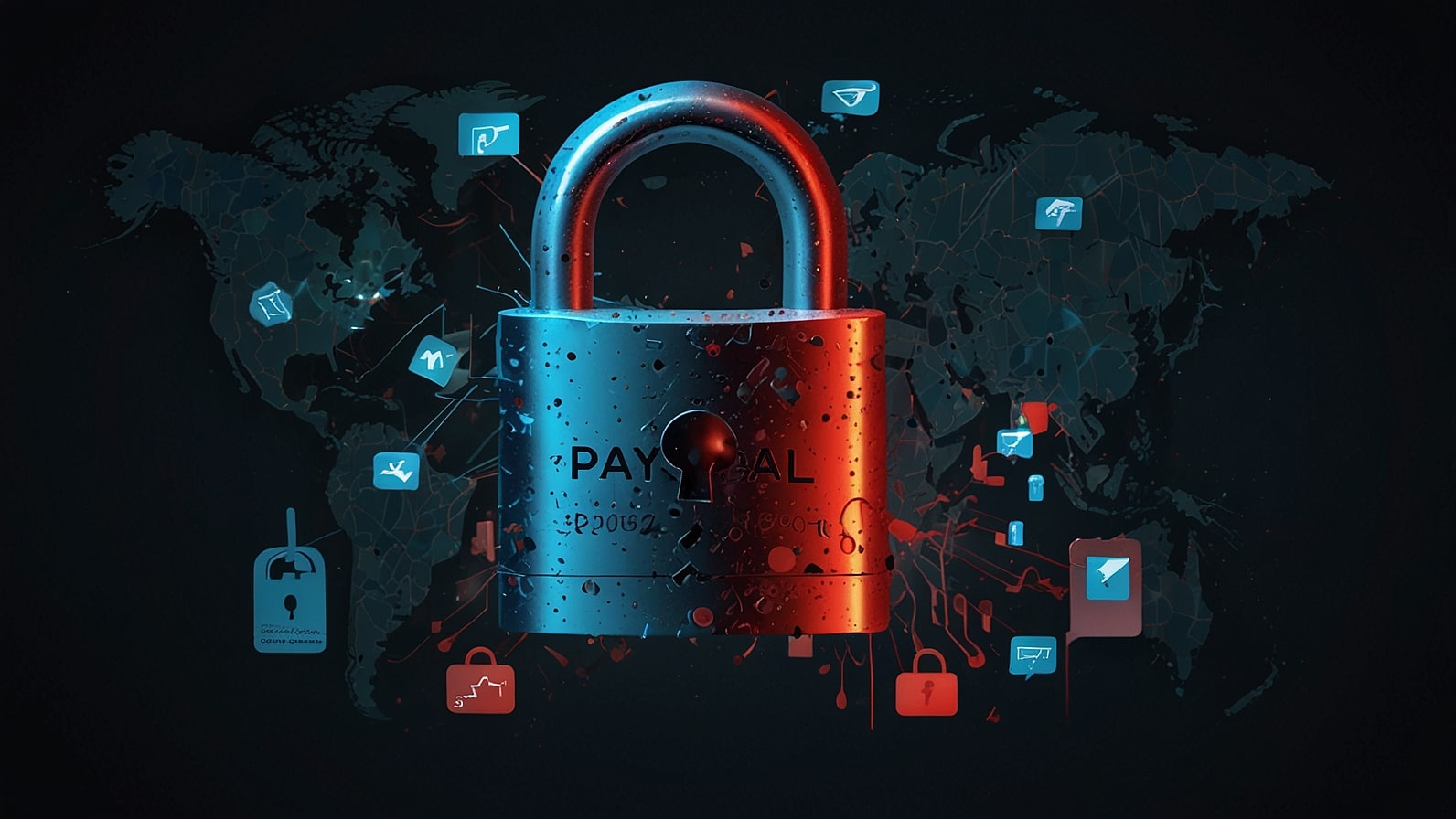
Paypal 2 Million Data Breach Settlement
PayPal has entered into a settlement of more than $2 million with New York State, marking a significant blow to the fintech industry, which was dealt a major setback last year when a data breach exposed the sensitive personal data of approximately 35,000 customers.
This settlement, announced by the New York State Department of Financial Services (DFS) on January 23, 2025, resulted from the state’s stricter cybersecurity laws being violated and highlights crucial security shortcomings at PayPal. Not only does this high-profile case highlight the growing risk of cyberattacks, but it also serves as a warning to companies that process sensitive consumer data.
The Breach: Happening and How
The credential-stuffing attack, which occurred from December 6, 2022, to December 8, 2022, is a technique in which cyberattackers use stolen or recycled login credentials to access accounts illegally. Hackers have exploited the weaknesses of PayPal systems, specifically by modifying the IRS Form 1099-K format, which was distributed with unredacted classified information, including social security numbers, full names, dates of birth, mailing addresses, and tax identification numbers of individuals.
According to DFS, PayPal did not use sufficient security procedures, including mandatory multi-factor authentication (MFA), CAPTCHA, or other rate-limiting provisions, which put accounts at risk of automated attacks. The security breach that was detected initially involved the identification of an online message by a security analyst bearing the title PP EXPLOIT TO GET SSN that referred to the PayPal website, resulting in the unmasked information of the customers.
Such a frightening negligence was also exacerbated by the weakness in staff training and the lack of proper risk analysis before the deployment of system changes by PayPal. The investigation by DFS also revealed that PayPal incorrectly classified the 1099-K update as a platform migration, rather than a new feature, which allowed it to bypass necessary security test measures, including penetration tests and vulnerability testing.
The Follies: Finances and Reputational Loss
The $ 2 million fine that PayPal is required to pay within 10 days of the consent order cannot be insured by cyber insurance providers; hence, the company can assume the complete financial penalty burden. The actual damages of 2 million dollars may not sound so significant in the case of a company with an annual net profit of PayPal (4 billion USD in 2023), but extended reputational losses and heightened regulatory attention will potentially cause the damage to be far-reaching.
The data breach affected 34,942 customers who were to receive two years of free restorative identity and credit protection services from Equifax. Nonetheless, the leakage of sensitive information, such as Social Security numbers, poses a major threat to identity theft, exposing the victimized users to years of potential attacks.
This has dealt a damaging blow to the trust people have in PayPal; conversations on other platforms, such as Reddit, often discuss increased distrust of payment intermediaries like PayPal due to security concerns. Users are raising questions about why they should patronize services like PayPal, given that even online banking solutions offer robust one-time password (OTP) and two-factor authentication (2FA) features. The violation has also fueled the demand for more regulated policies and accountability in fintech giants.
PayPal’s Response: Too Little, Too Late?
After the compromise, PayPal had added several corrective measures, requiring MFA (of all U.S. customer accounts), masking sensitive information on IRS forms, and adding CAPTCHA and rate-limiting to prevent automated logins. However, the DFS emphasized that the measures were taken too late to mitigate the impact. Experts and the regulators have been hard on the company because it had failed to actively implement MFA or do thorough risk analysis (before the incident) in line with cybersecurity regulations.
According to Dr. Ilia Kolochenko, a Cybersecurity expert and the CEO of ImmuniWeb (as well as an Adjunct Professor of Cybersecurity), the New York State Cybersecurity Regulation (23 NYCRR Part 500) is among the most comprehensive cybersecurity laws at the state level in the entire country, similar to the EU DORA. The failure of PayPal to adhere to these standards highlights the importance of investing significant effort in employee training and the necessity of close monitoring to prevent such incidents.
Broader Implications for Cybersecurity
The PayPal settlement is a painful reminder that the environment of cyber threats is changing. Credential-stuffing attacks are generally basic yet quite effective in cases where companies do not follow basic security measures. The case shows why businesses must focus more on cybersecurity as hackers continue to take advantage of recycled passwords and poor authentication frameworks.
To the consumer, this break is an eye-opening step to ensure they have better security standards, including creating unique passcodes and activating MFA whenever an option is available. The cybersecurity specialists suggest checking accounts regularly to detect suspicious activities and taking Identity protection services, especially for those who have been victims of the breach. PayPal users are being encouraged to go online and verify official guidelines on how they will be compensated, which could be either a cash payment or prolonged credit monitoring.
What’s Next for PayPal and the Industry?
PayPal will be required to enhance its cybersecurity infrastructure to comply with New York’s regulations, and any further proceedings will be halted unless new scams are uncovered. Nevertheless, the case has raised more general concerns about whether existing cybersecurity models are sufficient and whether federal regulations should be established to supplement state-based actions. A lack of penalties for non-compliances has been observed in other financial institutions, such as Geico and Travelers, indicating that the level of regulation is increasing.
PayPal should realize that money cannot buy back the trust. The company should demonstrate its commitment to quality security procedures, as well as open communication with its users. With fintech taking an increasing hold of the financial domain, such a case demonstrates a fine line between innovation and security.
Conclusion: A Wake-Up Call for All
The $2 million settlement resulting from the data breach suffered by PayPal serves not only as a penalty but also as a valuable lesson for firms and consumers. To companies, it teaches the importance of investing in qualified employees to work in the cybersecurity sphere, including periodic verification and fine-tuned monitoring.
To users, it serves as a reminder to be cautious and constantly vigilant in protecting their personal information. As cyber threats become more sophisticated, the stakes have never been higher. The costly experience of PayPal should prompt all organizations to reevaluate their security positions before it is too late.



 Bitcoin
Bitcoin  Ethereum
Ethereum  Tether
Tether  XRP
XRP  USDC
USDC  TRON
TRON  Lido Staked Ether
Lido Staked Ether  Cardano
Cardano  Avalanche
Avalanche  Toncoin
Toncoin  Wrapped SOL
Wrapped SOL